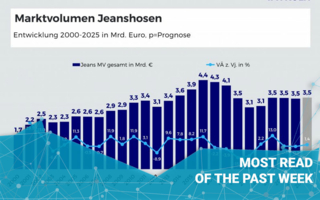25/09/2020 – Covid-19 — auf Deutsch lesen
Setlog warns of bottlenecks
Setlog Bottlenecks in transport capacities increase before China’s Golden Week – Freight rates for sea and air freight from Asia are rising.
Setlog’s SCM experts advise early planning and digital communication
Experts forecast capacity bottlenecks in the coming weeks and the associated rise in freight rates for goods transported from Asia.
The reason for this is the Chinese national holiday on October 1, which is followed by a one-week vacation.
Many companies and authorities close during the so-called “Golden Week”.
This year, the bottlenecks will be intensified by the effects of the Covid-19 pandemic.
Ralf Duester, CEO of the Bochum-based SCM software provider Setlog:
“In previous years, companies were already well advised to plan transports well in advance of Golden Week and to reach out to their logistics service providers accordingly. Due to a variety of effects of the Covid-19 crisis on the economy, the situation has worsened this year.”
The period before China’s Golden Week is already labor-intensive. Factories accelerate production. Space is becoming scarce in the sea and air freight sector. According to Duester, the current problem is that the volume of trade with China has returned to the previous year's level in some sectors, but the freight capacities of container shipping companies are lagging behind. “The import and export industry complains that long transit times still have to be accepted, so that goods only reach the port of destination a few days later than usual,” explains the SCM expert.
Another problem: the lack of empty containers
The reason is that transportation from Asia, particularly in the direction of North America, has increased, but the round trips with goods to Asia are not yet fully utilized, so containers have been piling up in the American ports and throughout the continent.
Experts do not expect the situation to improve quickly.
On the contrary: they expect a tense transport situation and high freight rates not only until Golden Week, but well into the fourth quarter.
Ralf Duester:
“This is why shippers must now book their containers immediately and declare cubage and tonnage correctly.”
He has already observed lively activity in recent weeks on Setlog’s SCM platform OSCA, on which, among other clients, more than 100 fashion brands communicate with their supply chain partners. “Transport changes are only easy when companies digitally network with their partners, like communicating on a supply chain management platform with access to information in real time,” says Duester. Anyone who still has to communicate by e-mail or exchange Excel spreadsheets loses time and will quickly fall behind the digital champions when it comes to booking capacities.
Patrick Merkel, Managing Director of Prologue Solutions GmbH, predicts that with rising transport demand, imbalance in the distribution of empty containers and blank sailings, sea freight rates will remain at a high level and shippers will have to dig deeper into their pockets than in times before Covid-19, when they benefited from a large supply of capacity.
Patrick Merkel, Managing Director of Prologue Solutions GmbH:
“Some shipping companies have announced or already levied peak season surcharges – despite long-term contracts with shippers,” Merkel said. In addition, some shipping companies had unilaterally suspended the agreed compensation for crude oil price fluctuations (BAF – Bunker Adjustment Factor). Merkel expects this to continue into the fourth quarter.
Air freight transports to and from Asia will not become cheaper in the coming weeks either. During Golden Week, some forwarders only process pre-booked shipments in import. More time should be planned for customs clearance. And there will be less space available for air freight export.
About the Golden Week
In the People’s Republic of China, the term “Golden Week” refers to three separate work-free weeks: firstly the Spring Festival in January or February, secondly the former Labour Day Golden Week, which has been reduced to May 1 since 2008, and thirdly the National Day Golden Week, which begins on October 1. These national holidays were introduced by the Chinese government in 1999 to stimulate the domestic tourism market, raise the general standard of living and allow for long distance family visits. Just like Japan's Golden Week, these days in the People's Republic of China are an intense travel season. In 2017, for example, more than 700 million people traveled.




